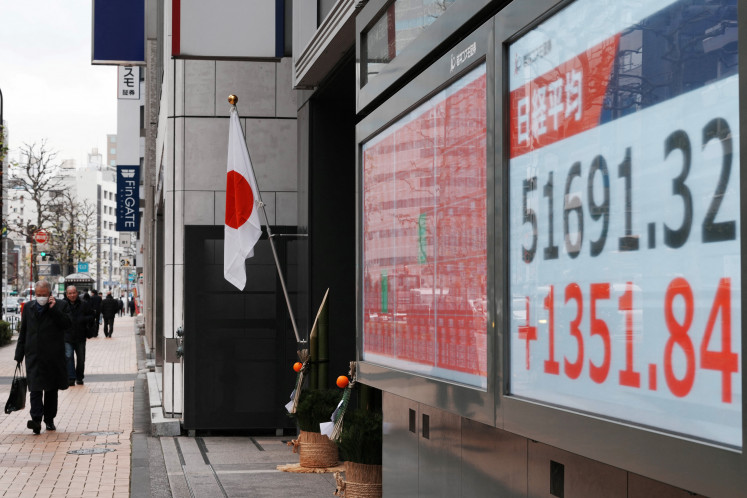Popular Reads
Top Results
Can't find what you're looking for?
View all search resultsPopular Reads
Top Results
Can't find what you're looking for?
View all search resultsPay later or pay never? Bad debt may damage loan growth, analyst warns
Experts urged buy now, pay later (BNPL) players to be selective in order to prevent more harm.
Change text size
Gift Premium Articles
to Anyone
B
uy now, pay later (BNPL) schemes, which are an increasingly popular way to complete payments for purchases after the transaction date, have led to a rise in nonperforming loans (NPLs), as many customers fail to complete their payments on time.
An analyst warned that the trend may slow down loan growth in the medium or long term. Other experts urged BNPL service providers to be more selective about offering the option to prevent an excessive number of defaults.
Credit rating agency Pefindo stated that outstanding pay-later debt amounted to Rp 25.16 trillion (US$1.65 billion) at the end of June, up 29.8 percent from mid-2022.
Pefindo's president director Yohanes Arts Abimanyu explained that the significant rise in the use of BNPL was primarily owed to the ease and speed of approval, while the economic recovery after the pandemic also played a role.
Elisabeth Carolina, an analyst at state-owned lender Bank Mandiri said the surge in BNPL related to the growth of online transactions, as many players had connected their services with ecommerce firms.
"Pay later is mostly used for transactions with a small basket size. Some users also use the service to manage their monthly expenses, with a plan to pay the debt before the due date, so they don't need to pay interest," Elisabeth told The Jakarta Post on Wednesday.
Basket size refers to the number of items sold in a single transaction.



















